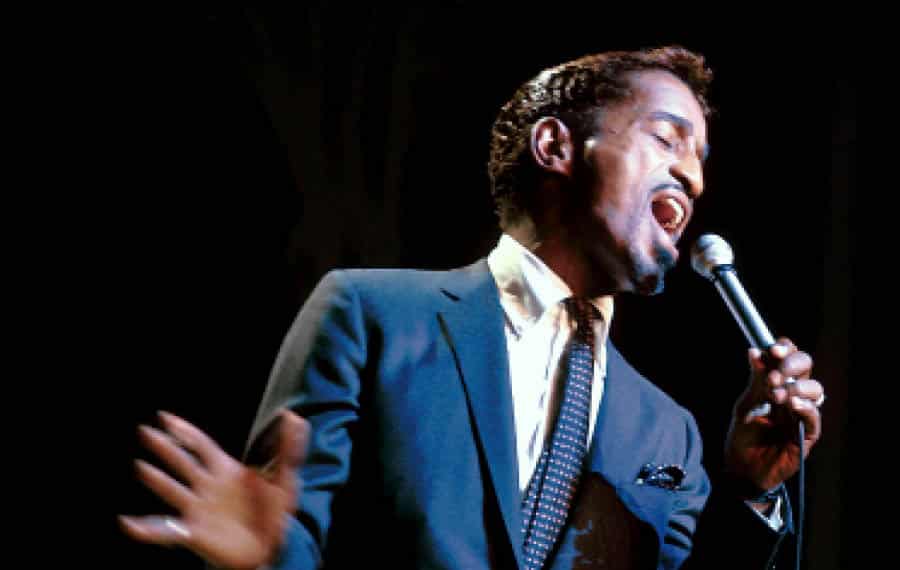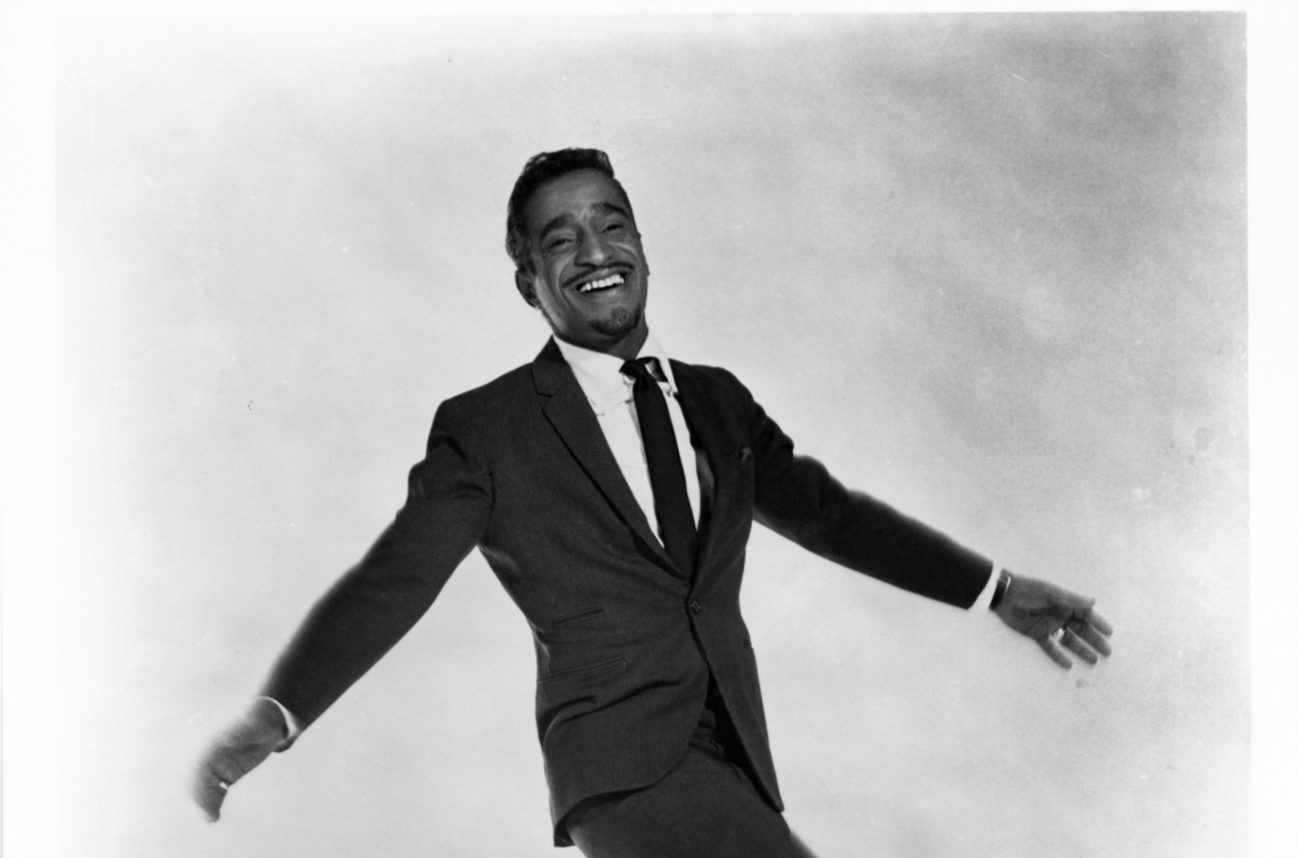 Photo by David Redfern/Getty Images
Photo by David Redfern/Getty Images Months before the pandemic I was enthralled by the PBS documentary “Sammy Davis, Jr: I’ve Gotta Be Me,” and how the singer, dancer and actor came to embrace Judaism.
In the early 1950s, Davis met Jewish comedian Eddie Cantor, and the two went on to become great friends. Cantor gave Davis a small mezuzah, which Davis wore around his neck, believing it would bring good luck.
On Nov. 19, 1954, at the age of 28, Davis was driving from Las Vegas to Los Angeles. It was the only time he had forgotten to wear the mezuzah. Shortly after 7 a.m. on Route 66 in the Cajon Pass, Davis’ Cadillac rammed another car. His head plowed into a cone on the steering wheel, and he stepped out of the car holding his left eye in his hand. It was one of the darkest periods of his life. He even attempted suicide.
Cantor stayed by Davis’ side in the hospital and they spent hours talking about the commonalities between Blacks and Jews. But it was a visiting Reform rabbi who blew apart Davis’ preconceptions about Jews, as he wrote in his memoir, “Yes I Can: The Story of Sammy Davis, Jr.” He wrote that the rabbi was “a rugged, athletic looking man in a khaki suit and a button-down collar …. The image of a rabbi with a long beard and silk coat and the big hat, which I’d retained from my days as a child around Harlem was in total conflict with this man.”
Davis said he was particularly moved by two aspects of Jewish culture: deep intellectual dynamism (think talmudic arguments) and overcoming oppression. On Christmas Day 1955, when he discovered the words “Merry Christmas, N—–!” on his garage door, Davis went into his bedroom and found solace reading Abram Sachar’s “A History of the Jews.”
Davis died in 1990, one year after my family and I came to the United States from Iran. As I watched the television montages, I was exhilarated at the sight of the gold Star of David around his neck. It resembled mine, only much bigger.

In his memoir, Davis described his affection for Jews in classic Rat Pack vernacular: “These are a swinging bunch of people.” Maybe that should be the new motto of every Chabad house from Atlanta to Azerbaijan.
He invited the public into his spiritual life through a combination of confidence and humor, once telling an audience, “It is true that I am an American Negro, and I have adopted Judaism as my faith. Everybody knows that, and all the comics make jokes about it. And I do it in self-defense. But I would also like you to know something that you’re probably not aware of: My mother is a Puerto Rican ….This is true — emes. So that means I’m colored, Jewish and Puerto Rican. When I move into a neighborhood, I wipe it out!”
But Davis paid a painful price for his incongruous identity. He never felt completely embraced by blacks or Jews, and his well-publicized friendship with then-president Richard Nixon made him a hated figure in both communities. In addition to his famous visit to the White House, his loving embrace of the president onstage at a Nixon Youth rally in 1972 was the hated hug seen around the world, and the photo haunted him for years.

But that was Davis. He hugged everyone, and he desperately longed to be accepted. In his mind, being close to Nixon signaled he finally had “made it,” but the black community saw him as a loathsome Uncle Tom, or as some called him, “a house Negro.”
At the Operation Push Black Expo in 1972, Davis was almost booed off stage. He responded by pointing his finger and saying, “Good, good, good.” It was almost as if he thrived on dissent. Maybe it was all that talmudic learning. He then declared, “Disagree if you will with my politics, but I will not allow anyone to take away the fact that I am black.” He then sang a soulful rendition of “I’ve Gotta Be Me.” When he was done, the audience rose to its feet, applauded wildly and thrust their fists in the air, signifying Black Power.
Davis was deeply hated in the black community, so why did he attend the event? Because in his words, he had to “face this.” That’s noble and today it’s rare. Imagine if he’d lived long enough to hug President Donald Trump onstage. No amount of soulful singing would have saved his career.
Davis said he was particularly moved by two aspects of Jewish culture: deep intellectual dynamism (think talmudic arguments) and overcoming oppression.
Maybe we needed someone like Davis last winter to address the onslaught of attacks against Orthodox Jews in New York that damaged black-Jewish relations. But I’m no fool. He probably still would not have found a semblance of acceptance.
May 16 marks 30 years since Sammy Davis Jr. died. Today, the words of “I Gotta Be Me” sound dated and cliché, but their emet is eternal:
“I’ll go it alone, that’s how it must be/I can’t be right for somebody else/If I’m not right for me.”
Tabby Refael is a Los Angeles-based writer and speaker.























 More news and opinions than at a Shabbat dinner, right in your inbox.
More news and opinions than at a Shabbat dinner, right in your inbox.